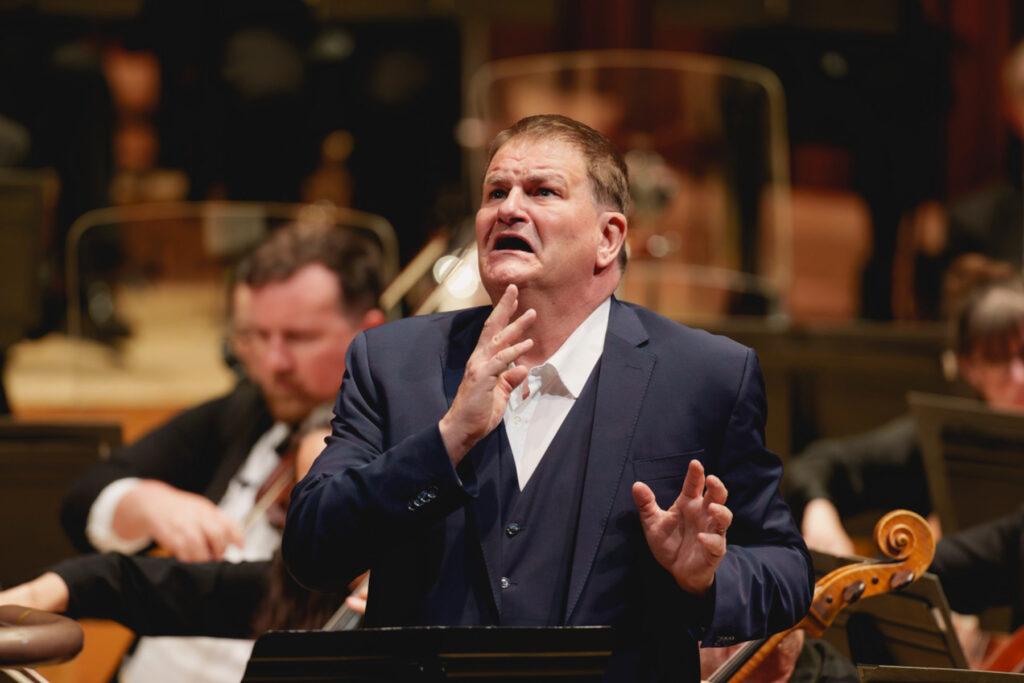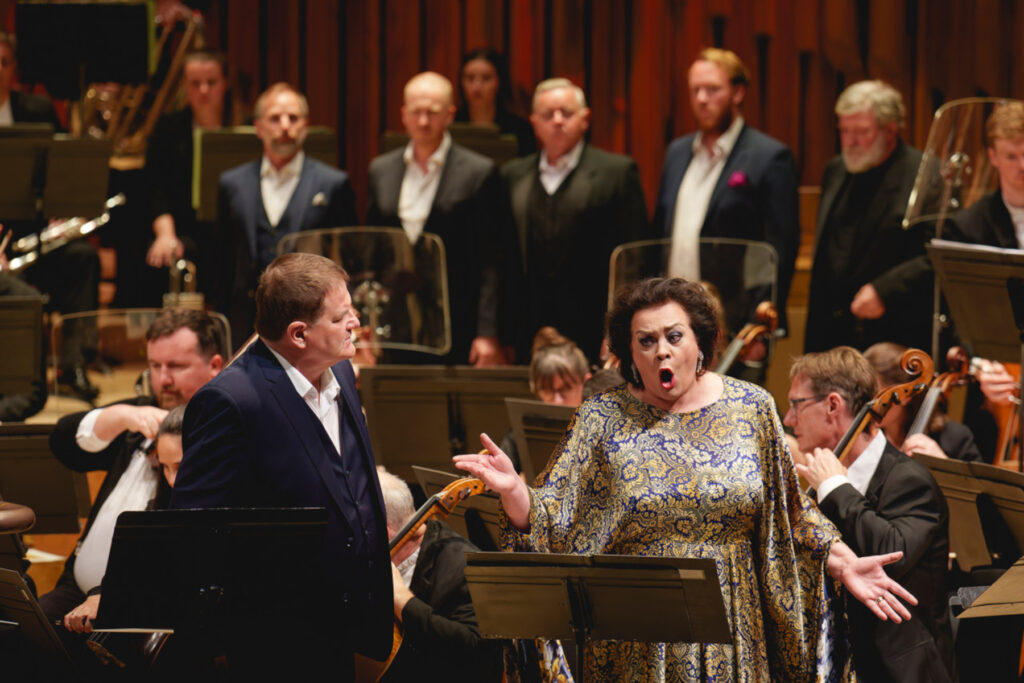Mahler, Ravel and Schoenberg all agreed that Richard Strauss’s Salome was amongst his greatest works and in a performance as compelling as this one it would have been almost convincing to see this is as his operatic masterpiece. Oscar Wilde’s description – in De Profundis – of Salome as ‘refrains whose recurring motifs make it like a piece of music and bind it together as a ballad’, recall not just Nietzsche but the Straussian ideal of music and word in a unified form – Salome being a complex structure spanning a vast singular arc. It was Antonio Pappano’s achievement to give us precisely this: he gave us a performance that was supremely decadent, and yet absolutely sumptuous; hell bent on igniting the poetry and fire beyond the text with a care for detail that was often microscopic. But it was also something else: it was symphonic Salome on an epic scale, too.

There were fantastic things to be heard in the orchestra. The attention to detail was ravishing; a sudden jagged scream from the orchestra – almost a howl – as Narraboth described Salome’s pale look was jarring. The brass for Jochanaan’s proclamations were magnificent – golden toned, solemn – and yet as solid as marble. There was an overt eroticism in the orchestra in Salome’s love music – the perverse wood bowing, the muted brass and the harps at the highest register clacking like castanets. The end of Jochanaan’s sermon – “Du bist verflucht” – was thrilling, the orchestral passage as massive as any I have heard; it literally sent a chill down the spine. And the decibels were mountainous. Herod’s ghostly winds were gloriously done, as magically whimsical as I can remember them. When the Dance of the Seven Veils came it was sultry, sensuous and Pappano whipped up a frenzied dance embellished with oriental colour. In some performances it can appear as if in aspic; not here, it flowed like silk, the playing of the LSO like molten honey. We got sclerotic chromatism and neuroticism in equal measure – and rarely have I heard the double basses before the final chords quite so terrifying as they were here. Pappano was enormously compelling in a tour de force performance from him, the LSO on glorious form.
Rarely in my experience has Strauss’s dysfunctional family sounded quite so psychologically horrific or so bereft of humanity than it did here in a cast which was led by the Lithuanian soprano Asmik Grigorian. Having sung the role to great acclaim in Salzburg in 2018, hers is an assumption that compares to the great Salomes of the past (Astrid Varnay comes to mind). The voice is silken, and yet cast in steel, too. She can sing with innocence, or with petulance, and with that searing love of the prophet which is almost Straussian Isolde. She could slide as effortlessly off-key, as she could fill acres of space with the thrilling beginning of the Schlüßgesang (magnificently sung – though perhaps not quite as I remember it with Cheryl Studer and Sinopoli in a concert in Dresden). If there was a coldness, an iciness, to this princess perhaps it was entirely intended – Grigorian seemed remote at times in her love or obsession for Jochanaan; on the other hand, it made her psychosis much more powerful. There was something venomous, cobra-like, about her repeated requests to Herod for the prophet’s head that was entirely disconcerting.

Michael Volle was a tenebrous, dark-toned Jochanaan singing at first from behind the choir (down in the cistern). Often the voice was simply huge, never under notable strain – even at the delivery of the curse, which was magnificently done – and was often a sonic spectacle to mirror the resplendence of the brass. If his acting may have been on the stilted side that could not have been said for the Herod of Wolfgang Ablinger-Sperrhacke who positively lived the part of the king. With a genuine chemistry between his Herodias, Violeta Urmana, Ablinger-Sperrhacke delivered his words with a precision and salaciousness that bordered on the prurient during his goading of Salome into dancing for him. Yet his horror at Salome’s kiss was visual. Urmana was a jabbering, querulous Herodias, vacillating whichever way her mood took her in support of her daughter.
Of smaller roles, Liam James Karai was a richly noble First Nazarene, and John Findon a heroic sounding Narraboth. The five Jews bickered and quarrelled from within the orchestra superbly.
Pappano never managed Salome at Covent Garden but this concert performance was a triumph.
Marc Bridle
Salome
Composed by Richard Strauss
Libretto based on the play by Oscar Wilde
Cast and production staff:
Asmik Grigorian – Salome; Michael Volle – Jochanaan; Violeta Urmana – Herodias; Wolfgang Ablinger-Sperrhacke – Herod; Niamh O’Sullivan – The Page of Herodias; John Findon – Narraboth; Liam James Karai – First Nazarene; Alex Otterburn – Second Nazarene; James Kryshak – First Jew; Michael J Scott – Second Jew; Aled Hall – Third Jew; Oliver Johnston – Fourth Jew; Jeremy White – Fifth Jew; Barnaby Rea – First Soldier; William Thomas – Second Soldier; Hannah McKay – A Slave; Redmond Sanders – Cappadocian;
London Symphony Orchestra; Sir Antonio Pappano – conductor
Barbican, London, 13 July 2025
Top image: Asmik Grigorian
All photos © Andy Paradise